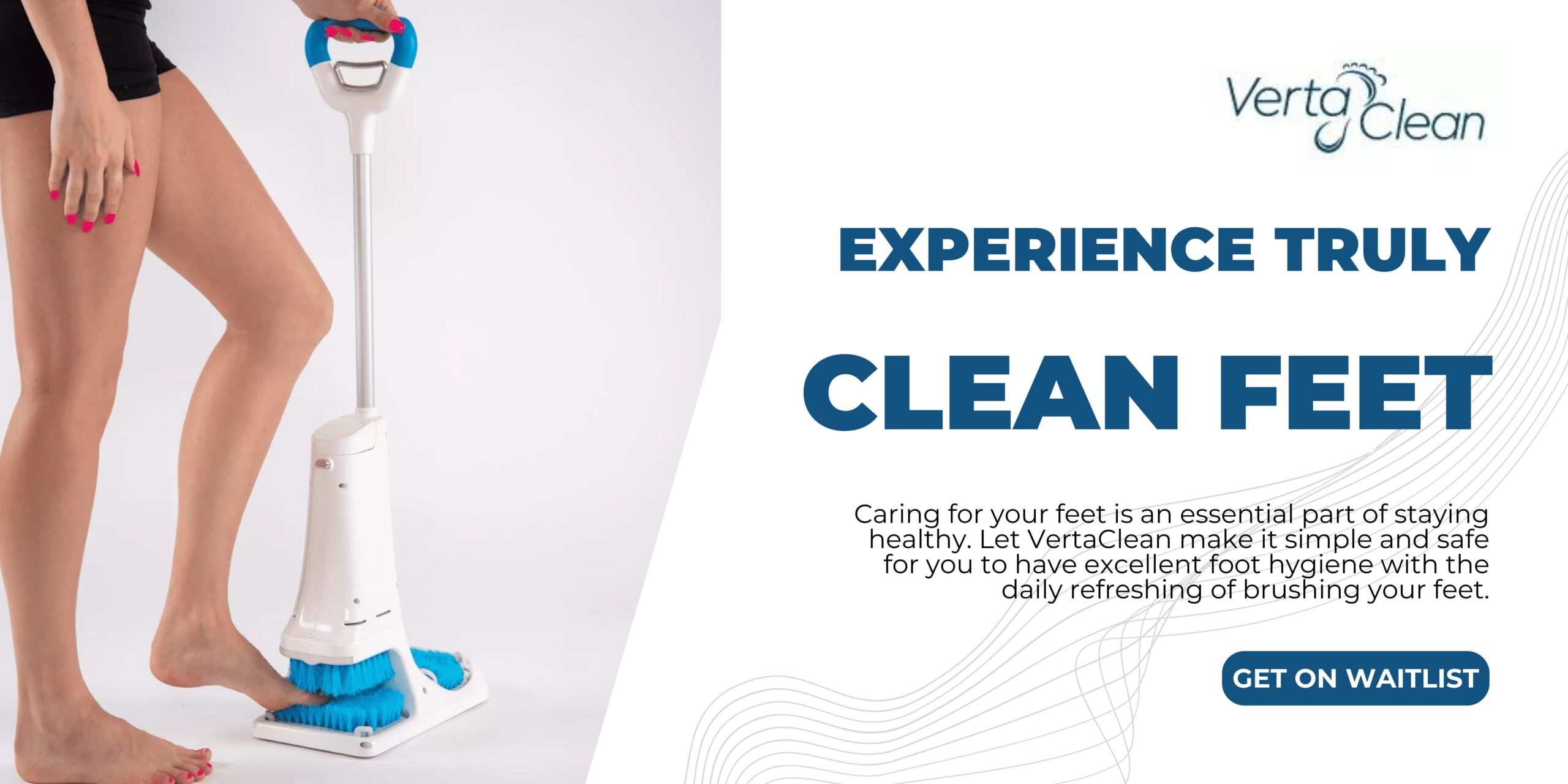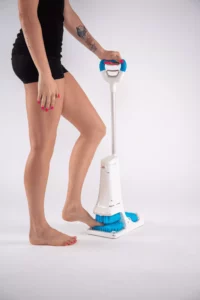When it comes to personal grooming and foot care, the use of a foot scrubber can be an excellent way to maintain soft, clean skin. These tools are designed to remove dead skin cells, improve skin texture, and even promote foot health. However, it’s important to recognize that not everyone can safely use a foot scrubber. Certain health conditions can turn what is typically a beneficial grooming tool into a potential risk. This article explores various conditions that may limit or prohibit the use of foot scrubbers, ensuring that your foot care routine remains safe and beneficial.
First, we delve into various skin conditions such as eczema or psoriasis, where using a foot scrubber might exacerbate symptoms or lead to further irritation. Next, we consider circulatory disorders, including diabetes-related complications, where skin integrity and healing are compromised, making mechanical exfoliation risky. We also address how sensitivities or allergies to materials commonly found in foot scrubbers can affect individuals, necessitating careful selection of foot care tools. Additionally, the presence of fungal or bacterial infections can also make the use of foot scrubbers inadvisable as it may lead to the spread of infection. Lastly, we discuss the implications of using a foot scrubber on open wounds or ulcers, a situation that requires careful foot care management to avoid complications. Each of these topics highlights the need for a tailored approach to foot hygiene and underscores the importance of understanding when a foot scrubber might do more harm than good.
Skin Conditions
Skin conditions are a significant consideration when it comes to the use of foot scrubbers. Individuals with certain dermatological issues should be cautious, as the mechanical action of scrubbing can exacerbate or trigger flare-ups of existing skin problems. Conditions such as eczema, psoriasis, and dermatitis can make the skin more sensitive and prone to irritation. In such cases, the abrasive action of foot scrubbers might lead to increased dryness, cracking, or bleeding.
Eczema, for instance, causes the skin to become red, itchy, and inflamed. Using a rough scrubber on eczema-affected skin could lead to further irritation and discomfort, potentially leading to infection if the skin barrier is compromised. Similarly, psoriasis, which leads to the buildup of thick, scaly skin, can be aggravated by vigorous scrubbing, causing pain and potentially bleeding.
Moreover, people who suffer from highly sensitive skin or conditions like keratosis pilaris might also experience negative reactions from using foot scrubbers. Such conditions often require gentle care and moisturizing rather than abrasive scrubbing. It is essential for individuals with any skin condition to consult with a dermatologist before incorporating mechanical exfoliation tools like foot scrubbers into their skincare routine.
In conclusion, while foot scrubbers can be beneficial for removing dead skin and improving foot health, they are not suitable for everyone. Those with existing skin conditions should consider alternative methods of foot care that are more in line with their skin’s needs, prioritizing gentle cleansing and hydration over mechanical exfoliation.
Circulatory Disorders
Circulatory disorders are a significant concern when considering the use of foot scrubbers. These disorders, which affect blood flow to various parts of the body, can make the feet particularly vulnerable to injuries and infections. Conditions such as peripheral artery disease (PAD), diabetes, and varicose veins can impair circulation in the feet, leading to complications that may be exacerbated by aggressive scrubbing or poor hygiene practices.
For individuals with circulatory disorders, the skin on the feet can be more fragile, less elastic, and slower to heal than those without such conditions. Consequently, the use of foot scrubbers, especially those with harsh or rigid textures, can lead to abrasions, skin tears, or even ulcers. These injuries can be severe and may not heal properly due to poor blood flow, increasing the risk of infections.
Moreover, reduced sensation in the feet, a common symptom of several circulatory issues like diabetic neuropathy, can prevent individuals from feeling the intensity of the scrubbing. This lack of sensitivity can lead to unintentional damage because the person is unaware of the pressure being applied. Therefore, it is crucial for those with circulatory disorders to consult with a healthcare professional before using any type of mechanical or abrasive foot scrubber.
In summary, while foot scrubbers can be beneficial for exfoliating and keeping feet clean, they are not suitable for everyone. People with circulatory disorders should exercise caution and seek medical advice to avoid potential complications. Alternative gentler methods of foot care, such as soft brushes or professional podiatric care, might be recommended to maintain foot health without risking injury.
Sensitivity or Allergy to Materials
Sensitivity or allergies to materials used in foot scrubbers can significantly impact an individual’s ability to use these products safely. When people with sensitive skin or allergies use a foot scrubber made from materials that irritate their skin, they may experience reactions ranging from mild irritation to severe allergic responses. Common symptoms include redness, itching, swelling, and in extreme cases, blistering or dermatitis. This condition can be particularly troubling because the feet are a less visible part of the body, and symptoms might not be noticed immediately, allowing the irritation to worsen.
The materials in question can vary widely depending on the type of foot scrubber. Many foot scrubbers are made from plastics, metals, or natural materials such as loofah or pumice stone. Each of these materials can contain allergens. For instance, some plastics are processed with chemicals that can trigger allergic reactions, while natural materials like loofah might harbor mold or other irritants if not properly cleaned and dried after use.
To avoid such adverse reactions, individuals with known sensitivities or allergies should look for hypoallergenic options or consult with a dermatologist to identify safe materials. Additionally, performing a patch test before using a new foot scrubber can help to preempt any potential skin reactions. By applying a small amount of pressure with the foot scrubber on a less sensitive area of skin, such as the forearm, one can observe if any irritation occurs before using the product on the feet. This proactive approach helps to ensure that foot care routines do not compromise skin health.
Infections
Infections are a significant concern when considering the use of a foot scrubber. This is particularly important because the use of such tools can sometimes exacerbate existing infections or even help spread new ones if not used properly or shared among multiple people. When someone has an infection, their skin may be more vulnerable to irritation or injury, making it crucial to handle the area with care.
Foot infections can vary widely, ranging from mild fungal infections like athlete’s foot to more severe bacterial infections, which might include cellulitis. Using a foot scrubber on infected skin can lead to further irritation or could cause the infection to spread to other areas of the foot or body. Additionally, if an infected area is scrubbed and then a foot scrubber is used on another person, it could transmit the infection.
It’s always best to consult with a healthcare provider about the appropriate care for foot infections. They may recommend treatments that avoid abrasive scrubbing and focus more on medicinal treatments. If someone with an infection must use a foot scrubber, it should be personal to them and disinfected after each use to minimize the risk of spreading the infection. In general, while foot scrubbers can be beneficial for exfoliating and keeping feet clean, they should be used with caution and awareness of any existing foot health issues.
Open Wounds or Ulcers
Open wounds or ulcers represent a significant condition that prohibits the use of a foot scrubber. These are breaks in the skin’s integrity which could be due to various reasons such as injuries, burns, or underlying medical conditions like diabetes or vascular diseases. When the skin is open, it is highly susceptible to infections because the protective barrier is compromised.
Using a foot scrubber on or near open wounds or ulcers can be extremely harmful. The abrasive action of the scrubber can aggravate the wound, potentially causing further damage to the tissue. This can delay the healing process, lead to infection, or worsen the existing infection. The debris and bacteria from the scrubber, even if seemingly clean, can easily contaminate an open wound.
It is crucial for individuals with open wounds or ulcers on their feet to maintain excellent foot hygiene. However, they should opt for gentle cleansing methods that do not involve mechanical scrubbing. Consulting with a healthcare provider for proper wound care instructions and suitable cleaning alternatives is highly advisable to ensure safety and promote healing.




